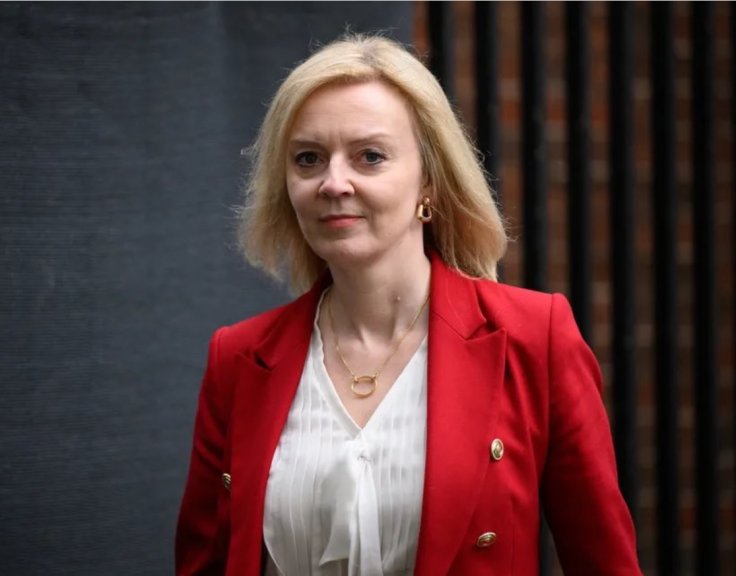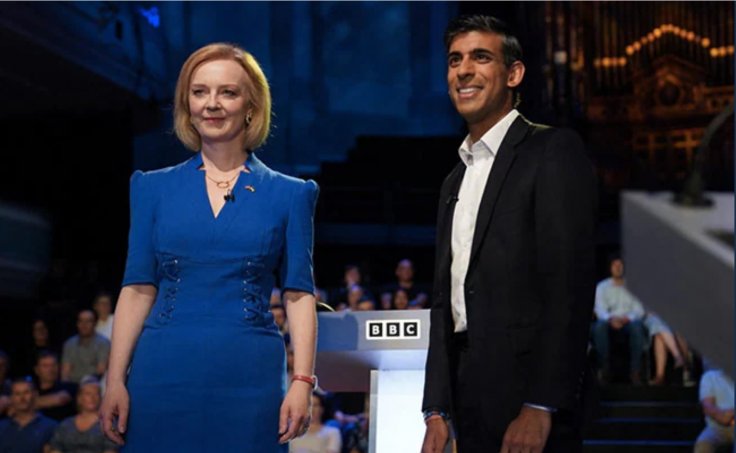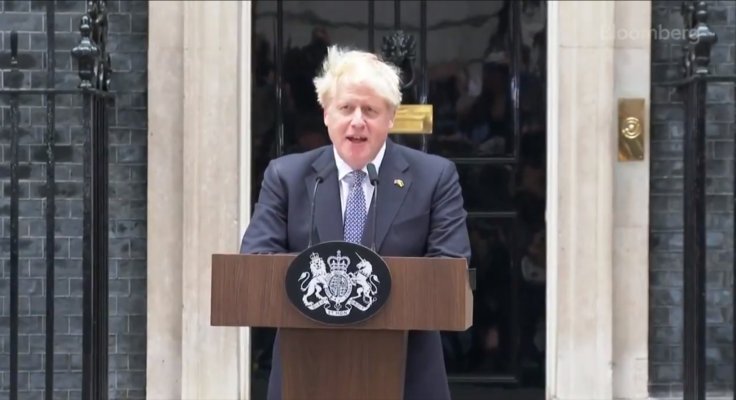Liz Truss was elected as the next prime minister of Britain on Monday after winning a leadership race for the governing Conservative party. Truss comes to power at a time when the country faces a cost of living crisis, industrial unrest and a recession. However, she has vowed to be bold' in cutting taxes and reviving the economy.
Truss, UK's Foreign Minister and Conservative Party leader, will succeed ousted Boris Johnson as British Prime Minister. Liz Truss defeated her rival, former finance minister Rishi Sunak, to win the Tory leadership contest. Truss won after beating UK's finance Minister Rishi Sunak with 81,326 votes to 60,399.
New Face, New Promises

Truss won the vote of Conservative Party members after weeks of a contentious and frequently acrimonious leadership race that pitted the foreign minister against former finance minister Rishi Sunak.
Truss, 47, was declared the winner of the race for the top position at 10 Downing Street by Sir Graham Brady, chair of the 1922 Committee of backbench Tory MPs and election returning officer.

She is also the only third female prime minister of the UK after Theresa May and Margaret Thatcher.
"I am honored to be elected Leader of the Conservative Party. Thank you for putting your trust in me to lead and deliver for our great country. I will take bold action to get all of us through these tough times, grow our economy, and unleash the United Kingdom's potential," Truss Tweeted.
She continued, "We will deliver a great victory for the Conservative Party in 2024," alluding to the impending possibility of a general election.

In addition, Truss praised her "friend" Boris Johnson, who will officially cede power to her tomorrow, claiming he "got Brexit done, smashed Jeremy Corbyn, rolled out the vaccination, and stood up to Vladimir Putin."
The resignation announcement marks the beginning of Boris Johnson's handover, who was compelled to make the decision in July after months of scandal resulted in support for his administration crumbling.
What's Next?
Johnson will now make a trip to Scotland on Tuesday to tender his resignation to Queen Elizabeth. The monarch will invite Truss to form a government and he will follow him.

Truss, who has long been the front-runner in the campaign to succeed Johnson, will become the fourth prime minister for the Conservatives since the 2015 election. The nation has been tossed from crisis to crisis over that time, and now faces what is expected to be a protracted recession brought on by skyrocketing inflation, which reached 10.1 percent in July.
Truss, who served as Johnson's foreign minister, has pledged to take swift action to address Britain's rising cost of living crisis, stating that she would have a strategy in place to address rising energy costs and ensure future fuel supply within a week.
Truss hinted during her bid for the leadership that she would defy tradition by repealing tax rises and slashing other levies, a move that some economists fear will lead to inflation. This, together with a promise to examine the Bank of England's mandate while preserving its independence, has pushed some investors to sell government bonds and the pound.
On the other hand, it might be the end of the road for Rishi Sunak. While waiting for the results on Monday, the candidates in the room appeared to have little chemistry with one another. Sunak is unlikely to get a big job offer from the new administration.

The final victory margin was, however, less than what the polls had indicated and was lower than what Boris Johnson, Theresa May, and David Cameron had achieved.
In an article published on Monday in the Financial Times, Kwasi Kwarteng, who is widely expected to become her finance minister, attempted to calm the markets by stating that while Truss' administration would act in "a fiscally responsibly way," there would need to be "some fiscal loosening."
Referring to the UK's debt to GDP ratio in comparison to that of other developed nations, he claimed that the country does not require "excessive fiscal tightening."








